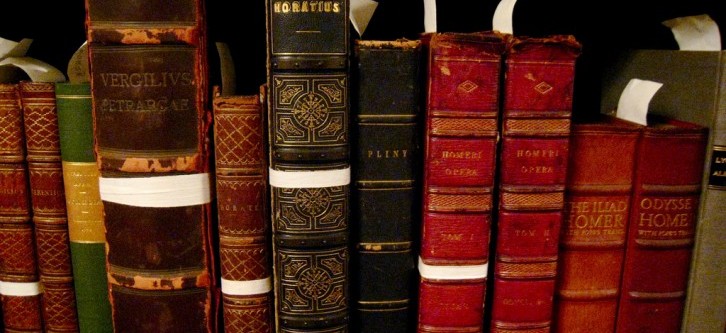Hello. And greetings from England. When I was asked by the ABAA to become a contributor to The New Antiquarian, I was delighted. But what to write? Much is made of the differences between British and American English—two nations divided by a common language, and all that—and I’ll admit that I enjoy discovering differences between the two forms of English on my regular visits to the US. There are words which American booksellers use which we don’t in the UK, such as inventory (‘stock’ over here) and booth, at a book fair (we say ‘stand’), but one thing I have particularly noticed in the last few years is the use of the word ‘rare’, as in ‘rare books’. (The word ‘antiquarian’ is another difficult one, but I’ll leave that to Laurence Worms over at The Bookhunter on Safari.)
So, what of ‘rare’? The Oxford English Dictionary defines it as "of a kind seldom found, done, or occurring; unusual, uncommon, exceptional." (Pleasingly, the earliest citation in the OED for this use of ‘rare’ is to do with books: "That book is rare And straunge to gete", Bokenham, Lives of Saints, 1447.) Certainly, I’ve always thought it to be part of some sort of scale: uncommon, scarce, very scarce, rare, very rare, unrecorded (or whatever). Just recently, my business became a limited company, and I was wondering whether to change the name, from ‘Simon Beattie’ to ‘Simon Beattie Rare Books’. An American bookseller friend commented that if I called the company ‘Simon Beattie Rare Books’ I wouldn’t be allowed to use the word ‘rare’ in my descriptions. If your firm says ‘rare books’, then obviously that’s what you sell. OK. So, if your firm says ‘rare books’, does everything you sell have to be rare?
Rebecca Romney, in ‘Rare Books 101’ on the Bauman Rare Books blog last year, wrote (in answer to the question: "What is a rare book?"): "In a nutshell, it is a book that is collected. 'Rare' in this case does not mean 'scarce'—though that is generally part of it."
The Johns Hopkins University Sheridan Libraries blog puts another slant on it: "We all know what 'rare' books are, right? Generally any book produced before 1800, as well as books that have a particular value or, well, rarity."
Helpfully, if you read a bit further in the OED you’ll come across another meaning: "Unusually good, fine, or worthy; of uncommon excellence or merit." Again—amazingly—the earliest recorded use is book-related: "Therin they fonde many noble and rare bookes" (Caxton’s Caton, 1483).
Obviously, the Oxford lexicographers have encountered the problematic niceties of the ‘rare book’ themselves at some point, for they then provide the term as a headword in its own right, with the following definition: "a book of special value or interest on account of its age, limited issue, binding, or other historical factors."
Perhaps the semantics of the term doesn’t really matter, but it certainly set me thinking. For me, being a bookseller is all about matchmaking, pairing up books with collections, whether private or institutional. If collectors want what booksellers find, and booksellers can find what collectors want, surely that’s really what it’s all about.
photo credit: sophiahussain via photopin cc


